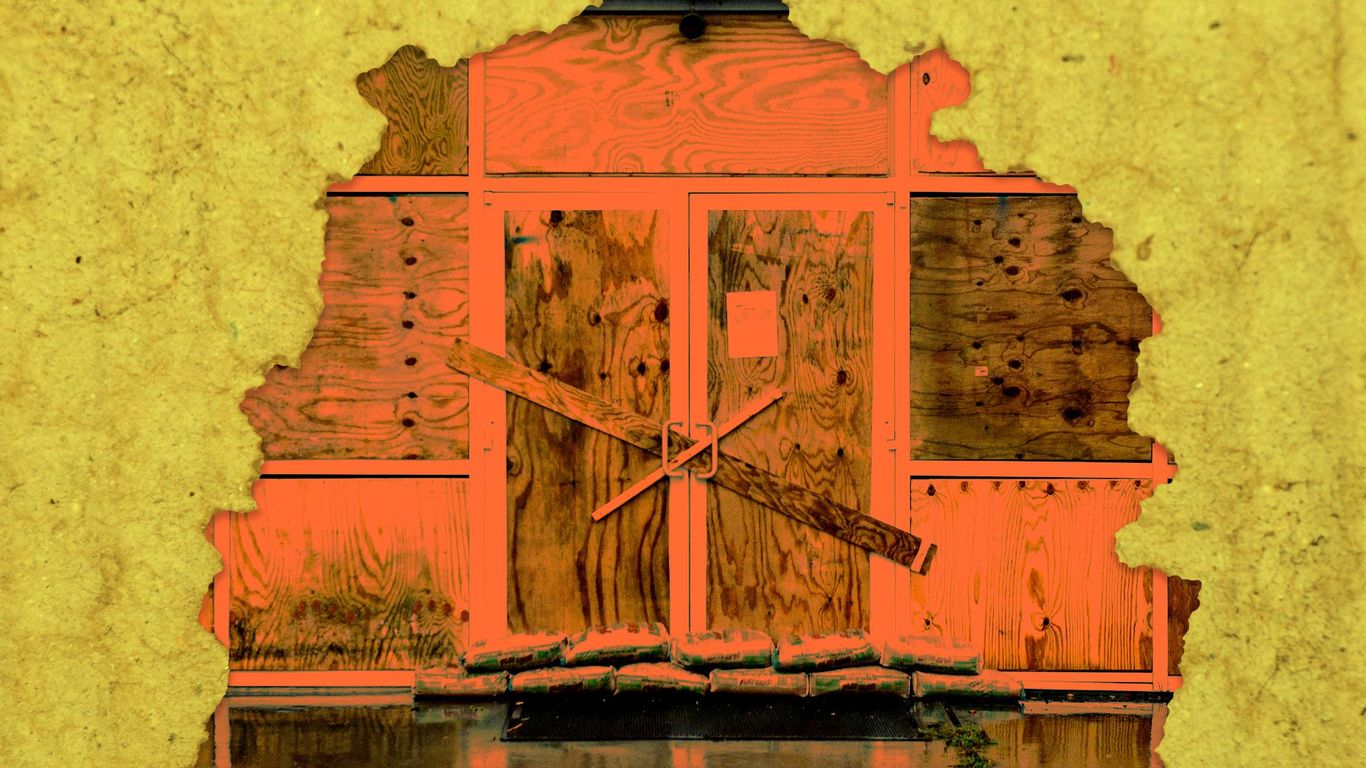
With climate shock waves set to roil communities with increasing frequency and severity, an urgent task facing us all is to build up resilience measures to withstand these events.
Why it matters: It's too late to stop extreme weather from increasing even as emissions are reduced, so all we can do is adapt to it. But there are strategies that you — and your community — can take to become better prepared.
With climate shock waves set to roil communities with increasing frequency and severity, an urgent task facing us all is to build up resilience measures to withstand these events.
Why it matters: It's too late to stop extreme weather from increasing even as emissions are reduced, so all we can do is adapt to it. But there are strategies that you — and your community — can take to become better prepared.
- Resilience means hardening our infrastructure — think of the electrical grid, roads and bridges — and our personal ability to anticipate and respond to such events, and recover from them.
- While extreme weather and the scientific warnings about it are frightening, they need not be paralyzing, experts told Axios.
- "A lot can be done to lower vulnerability and enhance resilience, while making people's lives better all around," said Claudia Tebaldi, a climate scientist with the Pacific Northwest National Laboratory.
Details: In much of California, residents have become accustomed to packing to-go bags filled with necessary items, key documents and mementos in case a wildfire encroaches.
- Similar steps are taken by residents in hurricane-prone areas ahead of the season's start on June 1.
- Part of becoming a more resilient society is better anticipating extreme weather events, and the federal government as well as cities, states and private industry are pouring money into infrastructure and businesses that can provide early warning capabilities.
Meanwhile, for some extreme events, resilience is more of a community project.
- Cities are planting trees in low-income neighborhoods that are often hotter than wealthier areas, due to a history of racially motivated real estate development decisions.
- Cities are also establishing comprehensive heat response plans that include putting more heat shelters in areas that have a higher proportion of vulnerable residents.
- Boosting response plans is an urgent task, particularly because of the emergence of unprecedented extremes, as seen in the Pacific Northwest this summer.
- "Extremes that are now rare are very far outside of what we have seen in our observational records," Friederike Otto, a climate scientist at Oxford University, told Axios.
How it works: For some extreme weather phenomena, such as heavy rain that causes flash flooding, the key is to pay close attention to weather forecasts and warnings as they are issued.
- This may mean supplementing an icon-focused weather app with trusted experts on TV, social media or other sources who might better convey a specific threat to your area.
- For example, forecasters warned for days that an unusual deluge was likely in the vicinity of northern New Jersey and New York City due to the remnants of Hurricane Ida. But many public officials and residents seemed caught off guard when roads suddenly turned into rivers and basement apartments became death traps.
It's also going to be important to design and build new infrastructure with climate change in mind. That requires time and money, however, and historically unprecedented storms are going to hit in the meantime.
- Resilience can also involve restoring and protecting natural barriers that help absorb water, such as marshlands and forests along coastlines.
- To reduce wildfire severity, it can mean doing more prescribed burns so there's less fuel that can cause a fire to burn out of control. Also, removing trees and bushes near homes can provide more of a buffer against any approaching blazes.
The bottom line: The climate extremes seen around the world this year, especially in the U.S., may make it seem like the challenges are too big to tackle. But relatively low-tech measures may help each of us, and society at large, better withstand the next big storm.
"how" - Google News
October 03, 2021 at 01:40AM
https://ift.tt/3iuqVDb
How to adapt to extreme weather - Axios
"how" - Google News
https://ift.tt/2MfXd3I
Bagikan Berita Ini














0 Response to "How to adapt to extreme weather - Axios"
Post a Comment